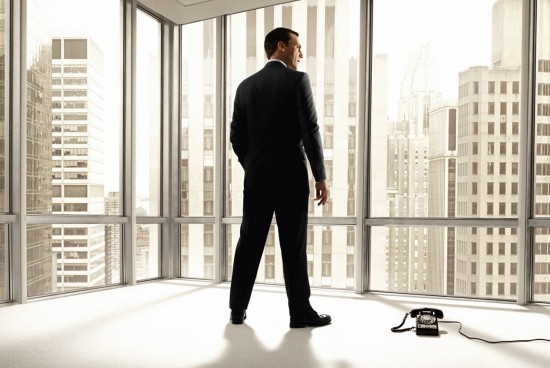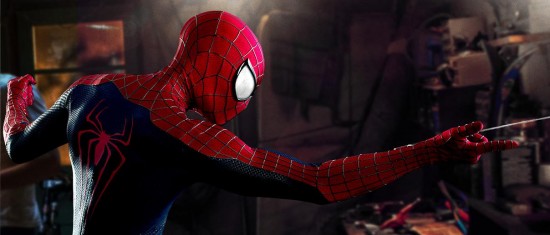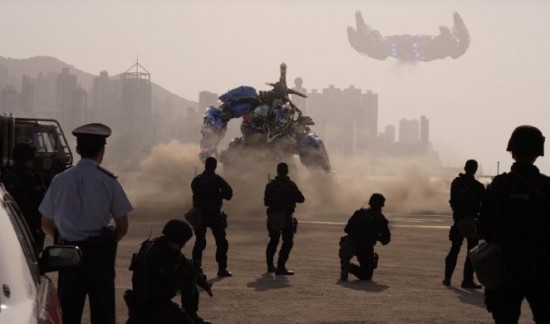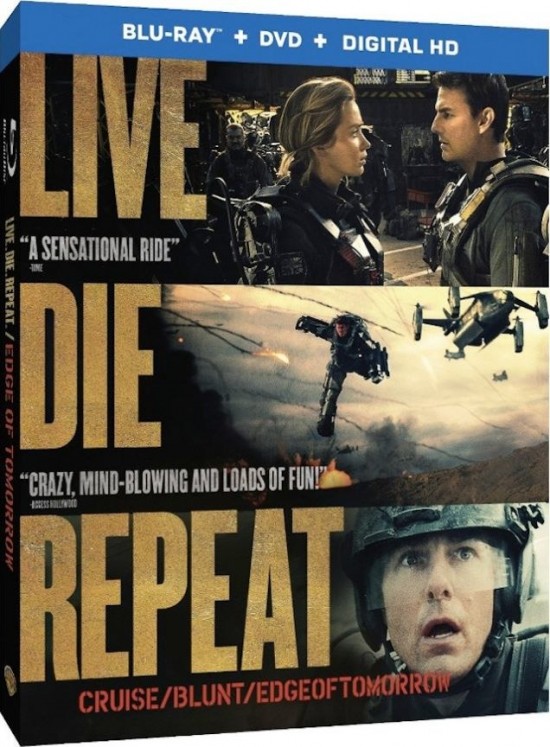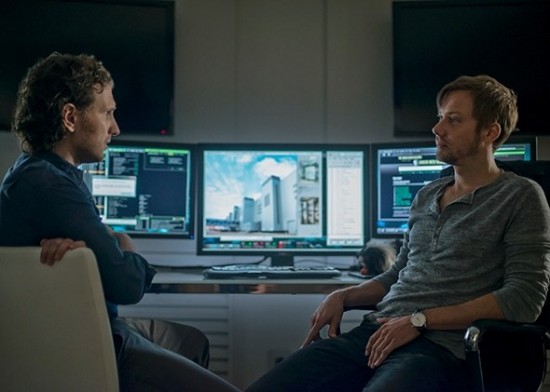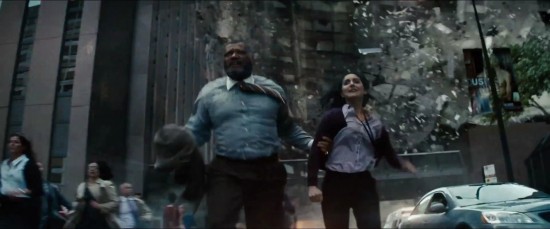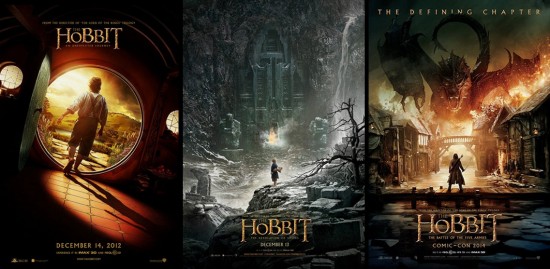9 Current Movie And Television Trends I Hate
I'm a relatively positive guy. I love geeking out over the movies and television shows I really respond to, and I try to bring that enthusiasm to the site. But you can't love everything. Here are 9 current movie trends (and also television trends) that I'm starting to hate.
Some of these things are Hollywood buzzwords that are current to this moment. Other things are storytelling cliches that have existed for a long time and either just won't die or have somehow made big new homes in today's pop culture landscape. And as the business of filmmaking evolves, so does the content, distribution and consumption of films. That leads to interesting times that aren't without their annoyances. What current movie tends are annoying me as of late? Which television trends do I hate? Find out, after the jump.
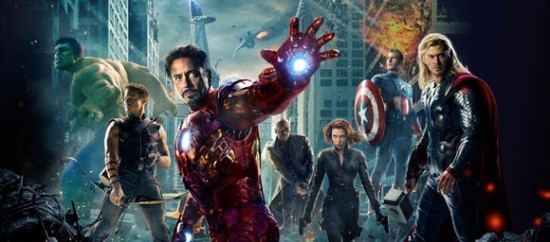
1. Marvel-Style Shared Universe
The following tweet from /Film writer Angie Han inspired this list post:
Congrats, "Marvel-style universe," on joining "gritty reboot" and "origin story" on list of phrases that automatically make me lose interest
— Angie J. Han (@ajhan) October 2, 2014
I love Marvel, and ! am excited about finally seeing the cross-media storytelling that was always a failed promise of the corporate "synergy" concept. Planning a story that extends outside of one movie is nothing new. Most Hollywood tentpoles are planned to set up a possible sequel. Sometimes Hollywood has ordered sequels to be written together and shot back-to-back, as was the case for the Back to the Future sequels and Lord of the Rings/The Hobbit trilogies. I believe the Wachowskis were probably the first to make it sort-of happen with The Matrix sequels, which connected across different media with a video game and anime movie.
We live in a world where binge watching serial long-form television on Netflix has become the norm, so its no surprise that audiences would want to see this happen on the big screen. And you know the movie studios want to replicate the success Marvel has seen in bridging characters and stories across a series of films and television series. Disney is currently trying to replicate the formula with Star Wars. (Which makes me wonder why Star Wars mega-fan Kevin Feige wasn't brought over to LucasFilm to help make that happen.)
Sony has been trying (so far unsuccessfully) to replicate the Marvel-style universe with Spider-Man. Fox has attempted the same with the X-Men universe. The Jack Ryan reboot was supposed to be the first movie in a new series which would potentially cross over into spin-offs with other Tom Clancy characters, stories and movies, but the film was not successful enough to make it happen.
Anyway, we haven't seen many of the projects that are attempting to create Marvel-style universes, but a lot of projects have been announced over the last two years. We've heard about Universal rebooting the classic Universal monsters in stand-alone films with the plan to lead to an Avengers-style team-up. Dan Aykroyd not only wants to make a new Ghostbusters film, but create a whole universe of movies. And there have been many other movies announced, like Sony's Robin Hood adaptation, which will attempt to turn Sherwood Forrest into its own cinematic universe.
Don't get me wrong, I love what Marvel has done with their cinematic universe. It is amazing. I hope Disney can replicate the formula with Star Wars as I'm a big fan of that franchise. But I don't think all of these movies and characters necessarily deserve their own cinematic universes. The last Robin Hood movie was supposed to be the first of a trilogy of films and Ridley Scott couldn't even make that happen. Why does Sony think they can do it a few years later? Does Robin Hood really offer that many storytelling possibilities? The term "Marvel-style universe" has already been used to death, so much so, we haven't even seen many of the formula copycats on the big screen and I'm already annoyed.
2. Television's New Season Swerveback
I love serial television and cliffhangers, especially when a good television series season ends in a way that you couldn't possibly have predicted. Its exciting. But many of these shows have fallen into a trend that I have come to hate, and I call that the new season swerveback. The season leaves our characters in a very interesting place, and we can't even imagine how the next season will look.
What I'm talking about is not the traditional cliffhanger like you would see in 24 where the character is in danger at the end of one episode and narrowly escapes somehow at the start of the next episode. I'm talking about and ending that seems definitive, with the lead character or characters being left with the seemingly irreversible situation where their lives will be changed forever.
This sometimes involves the lead characters living in a very different part of the world, working for a very different company, or being imprisoned in some way. The next season opens up in this new place/situation, and in the matter of an episode or three, has the characters back to essentially the same place they were before the conclusion of the previous season.
Many shows have done it, including Mad Men, Dexter, Scandal, Suits and more. While this trend has been happening more and more in recent years (maybe because Netflix, cable television and binge watching have helped the rise of more and more serialized television), I first noticed it in shows like Alias, 24 and Friday Night Lights. I applaud the shows that concluded with a twist and stuck with it for at least the next season. For instance: Battlestar Galactica and The Wire both took follow-up seasons to very different settings and situations.
My list of current movie and television trends continues after the jump.
We continue my list of current movie and television trends with the one who was destined to save us all...
3. The Chosen One Complex and Everything Is Connected
The chosen one isn't a new trend at all; it's part of the heroes journey and a foundation of mythic storytelling. But in recent years I have found more stories being forced into this box, many in very awkward fashion.
Spider-Man has connected with young boys for many years, and part of the reason is that it could have happened to anyone. It's a wish-fulfillment superhero story of a nerdy unpopular boy who gets bit by a spider which gives him super powers. The Amazing Spider-Man 2 adds a subplot that makes Peter Parker the chosen one — the only person in the world who could have became spider-man when bit by that radioactive spider.Teenage Mutant Ninja Turtles were always the result of a mutant ooze, but in the Michael Bay-produced 2014 Teenage Mutant Ninja Turtles they further connected reporter April O'Neil to the origin of the super-powered ninja vigilante group. Now, the turtles were the result of her father's laboratory experiments. They like pizza because April once fed them pizza!
Somehow this "everything is connected" attitude is supposed to give the character more weight, and in return, make the audience more invested in their relationships and struggles. But this "everything is connected" storytelling makes it all feel too convenient, too obvious. It's funny because screenwriters never want story beats to feel too coincidental or else the events and successes feel unearned, or like the result of a Deus ex machina. But the opposite is also true, and this is my feeling with "everything is connected".
I'm a fan of stories where the guy or gal in the wrong place at the wrong time gets sucked into an unexpected adventure. For instance, the first Die Hard movie. Sure, maybe he has a certain set of skills that will help in this journey to make it interesting. But it isn't pre-ordained. This kind of setup is more compelling to me than having the hero be the key to the entire threat, somehow genetically engineered to be the chosen one.
4. Dramatically Killed Off Only To Come Back From The Dead
One of the lead characters, who we have grown to love, is killed off dramatically only to somehow come back from the dead before the end credits. This is another storytelling bit that has existed for millennia (maybe Jesus Christ was the first?), but I've noticed Hollywood has been overusing the trope a lot recently.
Its hard to give any examples of this one without spoilers, so the next paragraph will be in invisotext discussing some major blockbusters of the last few years. Highlight to reveal: The most recent and largest examples of this that come to mind are Star Trek Into Darkness, where James Kirk sacrifices his life to realign the warp core in the radioactive reactor chamber to save the USS Enterprise and crew, only to be brought back to life using Khan's blood, which apparently has regenerative properties (how convenient). Some comic book movies to use this recently include Captain America 2 which featured the death of Nick Fury, revealed as a deception to take the character off the grid, or Guardians of the Galaxy, which featured the self-sacrifice of Groot to save the group. But Groot is replanted and regrown during the end credits button sequence. And there have been other movies I loved that have recently used this, like Dawn of the Planet of the Apes which featured the apparent death of Caesar, only to be discovered later seriously wounded by the human leads. End invisotext.
Also note that a lot of superhero films have been using this trope recently, but to be fair, its been overused in the comic book source material so much that readers don't even care when the latest superhero bites the big one. They'll be back somehow, or maybe it was their secret clone that died?
I don't have an issue with this swerve in particular, but when overused you begin to lose trust in the storyteller, and in future movies find yourself not invested in a dramatic death as much as you should be — because it's probably not real anyway.
5. Lets Go To China, For No Story Reason Whatsoever
If there is money in it, Hollywood will do it. Remember, it is show business. China only allows 34 foreign movies to be shown in theaters every year, with a preference for those movies that "fit Chinese ideology and use Chinese actors and locations." Recently Hollywood studios have been tweaking their movies and adding Chinese actors in order to compete for the Chinese multiplex. They do this because there is big money to be made in China: $3.6 billion in 2013, nearly double any other cinema market outside of the US and Canada.
So when you're watching Transformers: Age of Extinction and the story suddenly travels to Hong Kong for no real reason and starts to feature Chinese actors that seem shoehorned into the plot, this is why. And the result for Transformers 4 has been $301 million at the Chinese box office, more than the film made in the United States ($245 million) and almost a third of the film's total box office receipts ($1.08 billion). Paramount worked this angle hard, even staging a reality show to find Chinese extras for the film.
Iron Man 3 also filmed scenes in China but those scenes were only featured in the international release of the film (which gave top billing to two Chinese stars, Wang Xueqi and Fan Bingbing). Other films have done it as well. Chinese characters not in the novel were added to Salmon Fishing in Yemen and MGM changed the ethnicity of villains from Chinese to North Korean for the Red Dawn remake.
Being a Chinese co-production doesn't always have a strange or negative effect on the movie, Rian Johnson's Looper rewrote scenes to take place in Chinese locations and the film probably looks better because of it. And without the Chinese box office we'd likely never see a sequel to Pacific Rim, which was envisioned for Hong Kong before the Chinese co-production became a money play, and made $111 million in China. (That's $10 million more than it made in the United States.)
Any diversification of actors in Hollywood movies is a good thing. God knows the major studios have a history of whitewashing — but casting should be done on its own terms and not on the basis of a Chinese government mandate. The result is not Chinese actors being given the opportunity to take on more important roles, but too often being employed in superficially created tacked-on side characters.
This is a tend that we will likely see more and more in the coming years, and it will be interesting to see just how many random scenes and characters will make it into films just to get a slot in the Chinese multiplex.
6. Mismarketed Movies
I know we often have issues with movie marketing revealing too much, but I've recently been annoyed by movie marketing focusing only on a selective aspect of a film or leaving key parts out of the equation.
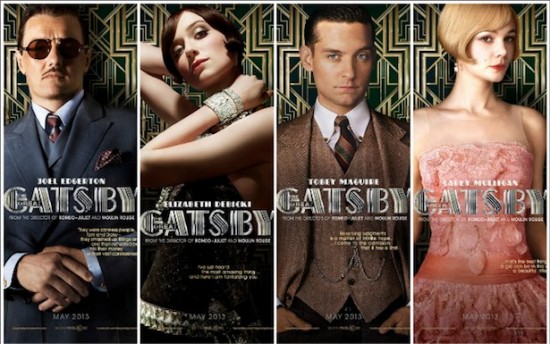
7. Character Posters
When I was a kid, going to the movie theater was the ultimate experience and the film was only half of it. I loved walking down the hallway, checking out all the new movie posters for films I've never heard of, all coming soon to a theater near me. And of course the trailers before the film. I still love trailers and posters, and have not become trailer-phobic because I usually have a short term memory. If I'm not watching a trailer over and over again, I won't be spoiled in any way. I even love character posters, when they are done right... but with studios it's all about excess, especially in the marketing department.
Not every movie needs character posters. Actually, most movies don't need character posters. Kate Erbland wrote a good article about this subject last year. Here is an excerpt:
The reason that character posters exist appear to be twofold – one, they are simply part of a large-scale marketing package that includes other traditional pieces like teasers, trailer, teaser trailers, theatrical posters, teaser posters, banners, and the like (possibly also of the teaser variety) and two, they are meant to impart familiarity with an often very large cast of characters. If a film has enough people that are all essential to its narrative, sure, give them their own poster to drum up interest from the movie-going masses, but the last few sets of character posters that have been released for public consumption continue to feel randomly conceived, designed, and fired off. ... One graphic designer we spoke to suggested that "the only reason why we have character posters is because agencies have grown large enough to have bodies to throw at projects."
Can a character poster do a disservice of being a bad point of entry into film awareness? Is all marketing good marketing? I think what's clear is that most character posters are poorly designed and feel slapped together with not much thought about how it will represent the film, and if it will interest potential moviegoers.
My list of current movie and television trends concludes after the jump.
And the final two entries in my list of annoyances in current movie trends:
8. Hackers and Nerds
This has been a huge issue for many years in movies and television. For many years nerds were embodied by the over-the-top, taped-up glasses-wearing nerds from Revenge of the Nerds. That's until The Matrix tilted the stereotype into the completely opposite direction: the super-cool hacker. We now live in a day and age where nerd and geek has become cool, but still Hollywood can't get them right on the big screen.
I thought for sure that things might change after David Fincher released The Social Network, but aside from the occasional cult hit like Silicon Valley and Halt and Catch Fire, the depiction of hackers and nerds still remains to be more of a Big Bang Theory-style caricature than a real-feeling fleshed out character. Even when it comes to premium television programing, hackers are usually the worst executed subplots in the show.
Take for instance Jimmi Simpson who played Gavin Orsay on House of Cards: a computer hacker working for the FBI who is enlisted to entrap journalist Lucas Goodwin. Of course, the hacker operates out of his dark but modern lair with Cashew, his female guinea pig pet. The whole subplot felt forced and fake and it doesn't help that the hacker character feels a bit like a cliche. It was one of my most hated things about the series thus far.
And if you're going to go for comic relief, learn from the Russo Brothers' brilliant bit in Captain America: The Winter Soldier, casting DC Pierson as a hipster-meets-Apple dude nerd who appeared in the Apple Store scene above.
Also: How many shows do we have to watch where hacker or nerd characters gives a speech about the super dangerous "deep web" when its clear the actor, writers (and thus the character) doesn't appear to know what they're even talking about. Unless you know how to integrate this buzzword into real techie speak, it should never be spoken on the big or small screen again.
9. World At Stake
It seems like the world or universe has to be at stake in every Hollywood blockbuster these days. How many films have we seen where cities are left in rubble at the conclusion? The end of the world/universe is truly the ultimate consequence, but not every tentpole movie requires such huge odds.
Now don't get me wrong, some stories deserve the struggle to save the world as we know it, but many other stories might be better served with more personal consequences. And sometimes those more personal stakes connect with us on a more personal involving level.
Some of the best blockbusters of all time have had relatively small stakes. My favorite movie of all time, Back to the Future, features a climax that involves a "will they kiss or not" plot with only Marty's family and self at stake, and a 88 mile an hour drive down the street in efforts to get back to the future. Jaws involves a bunch of guys on a boat trying to kill a shark. The original Jurassic Park is about dinosaurs terrorizing a few humans on a small isolated island, with little to no threat to the outside world. (That is, if you don't count the Nedry subplot that ends as shit hits the fan.)
Or as my colleague Jack Giroux puts it:
Current Movie Trends That Annoy You
I asked the question on twitter and here are some of the more interesting responses:
@slashfilm retelling stories from the villains perspective so that they appear to be the victim.
— Jay Jayson (@JayJayson111) October 7, 2014
@slashfilm young adult adaptations of dystopian futures where kids are chosen to join some big thing
— Derick Armijo (@DerickArmijo) October 7, 2014
@slashfilm More reboots, rehashes, same thing happening all over again. Copying each other's movies.
— Alex B. (@firstshowing) October 8, 2014
@slashfilm "the untold story" or "because destiny" storytelling devices
— Diego Crespo (@thediegocrespo) October 7, 2014
@slashfilm Risk-avoidance leads to uninspired projects leads to lack of viewer interest leadsto lack of ticket sales leads to risk-avoidance
— Captain Jack (@jackmactonight) October 7, 2014
@slashfilm The desire to remake seemingly every movie known to man.
— Kenny Eller (@KennyEller4) October 7, 2014
@slashfilm Most trends begin because the trend setter was so well received...doesn't mean knock offs will be any good.
— Matthew Legarreta (@mattlegarreta) October 8, 2014
@slashfilm At the current moment? Taking movies and adapting them to TV shows. Uncle Buck, Say Anything, Big, Minority Report...ridiculous.
— Matthew Legarreta (@mattlegarreta) October 8, 2014
What Do You Think?
In the comments below please leave your thoughts and let us know what current movie trends, or even current television trends, annoy you.

